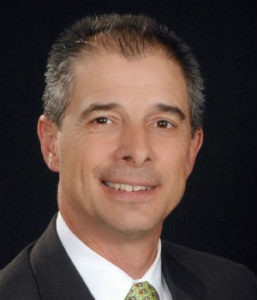 A memory recently emerged from the hazy gray of my childhood. I don’t remember where I was or who taught this lesson, but the memory reminded me of the whole new world that opened to me in one moment. It was a distinctive, bright “aha,” instant and strong. It was a new and exciting level of thinking for me; not that I was suddenly more sophisticated, but I remember instantly knowing that I was engaging in a deeper level of consciousness about my world.
A memory recently emerged from the hazy gray of my childhood. I don’t remember where I was or who taught this lesson, but the memory reminded me of the whole new world that opened to me in one moment. It was a distinctive, bright “aha,” instant and strong. It was a new and exciting level of thinking for me; not that I was suddenly more sophisticated, but I remember instantly knowing that I was engaging in a deeper level of consciousness about my world.
I was raised in the church and had good parents who from my earliest days taught me right from wrong, the basic stuff. “Do unto others as you would have them do unto you.” They called it the Golden Rule, and that was easy enough to understand.
“Ethics is always communal, corporate, social.”
But I learned a new lesson the day I heard the word “stereotype.” It was the first time I understood that right and wrong is bigger than just my individual interactions with other people. To stereotype is to cast a blanket characterization on someone, to generalize some group of people. “All black people …” “All women …” “Everywhere …” “All the time …” “No one who …”
In that moment I was introduced to Christian ethics, maybe an aspect of what I would later know as social justice. Right and wrong has an individual dimension, but justice is way bigger than just personal interaction. Ethics is always communal, corporate, social – and language has the power to heal or to wound, to inspire or to incite, and to unite or divide peoples and nations.
Years later I would hear Amy-Jill Levine, professor of New Testament and Jewish studies at Vanderbilt Divinity School, lecture to a room full of mostly white, male, Christian pastors. She wanted to help us be aware how much anti-Semitism is communicated from Christian pulpits, even by well-meaning pastors who don’t intend to be anti-Semitic. “In your preaching,” Levine said, “you should never say ‘the Jews’ – as in, ‘The Jews believed’ … ‘The Jews hated’ … ‘The Jews killed Jesus’….” Such generalizations make strong assumptions and characterize all Jews by the words or actions (or stereotypically presumed actions) of a few. She asked if it would ever be appropriate to say, “The Christians believe …”; “The Christians say …”; “All Christians….”
Point well-taken.
Obviously, everyone did not learn this lesson that was so world-altering for me. Harmful, hateful stereotyping is all too common these days. Preachers make it their bread and butter. The President has made it a literal rallying cry, inciting his masses almost to hysteria. The tool of a lazy mind, the product of shallow thinking and the evidence of unsettled and angry spirits, stereotypes that are ubiquitous in the religious and political discourse of our age are also evidence of a nation misguided, the immaturity of the body politic.
“The demonization of any people group, political party, religion, race or gender is not ‘news’ and has no place among mature adults.”
It would be terrible enough if the stereotype was just childish name-calling; but the lesson I learned first as a child and later in more sophisticated ways as an adult made it clear that words have power, and bully pulpits spread disease if they are not spreading good will. Stereotyping becomes bigotry, which issues forth in all manner of evil. Hate speech rarely ends with harmful speech.
I recently flipped the channel to Fox News, and though I didn’t know the “news” anchor, I can quote him verbatim. Within about five minutes of tuning in, in the midst of a long, expected harangue, he said, “All Democrats are evil” – and five minutes was enough for me that day. The demonization of any people group, political party, religion, race or gender is not “news” and has no place among mature adults.
One might hope that thinking adults could see through such foolishness, but in a recent conversation with a member of my (supposedly informed) Baptist church, a conversation that turned to politics, I heard, “Well … the Democrats are wicked.” Wow. I wonder where she learned that?
We’ve got to stop this.
All Democrats aren’t evil. All Republicans aren’t greedy. All immigrants aren’t trying to cheat the system, steal “our” jobs or rob us blind. All evangelicals aren’t bigots. Islam isn’t an evil religion. “The liberals” don’t hate America. “The Squad” isn’t trying to destroy the country. All feminists aren’t in it just for power. Everyone who voted for Donald Trump isn’t a fool. And everyone who eats at Chick-fil-A….
You can add to this list with examples from your own experience. But all of us would do well to recall the old affirmation often attributed (probably erroneously) to Augustine, which became the motto for the Moravian Church: “In essentials, unity; in non-essentials, liberty; IN ALL THINGS, charity (love).”
If one of your favorite preachers, pundits or politicians speaks in stereotypes, it’s time you changed the channel. We can do better. We must.
